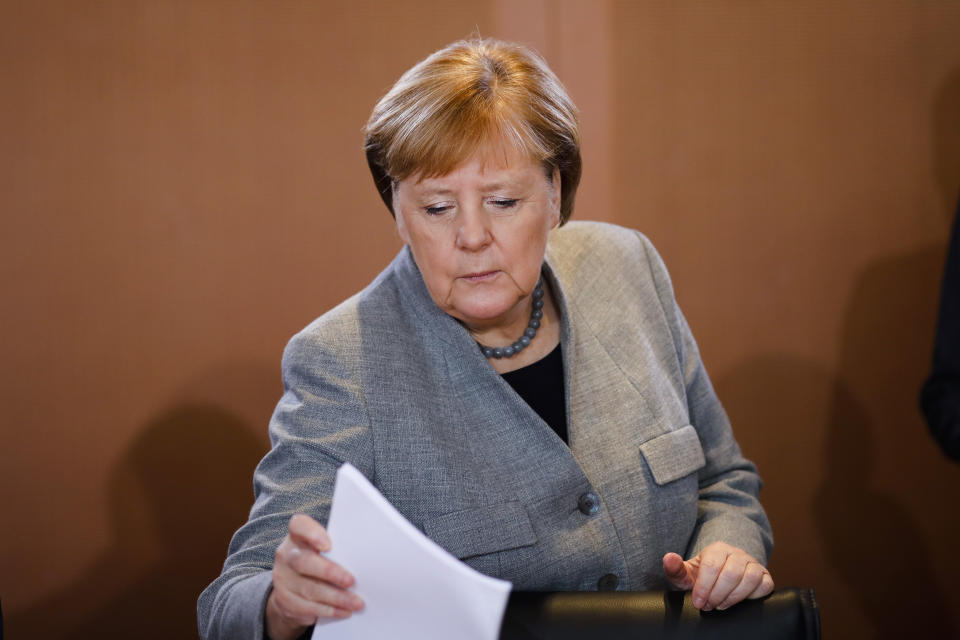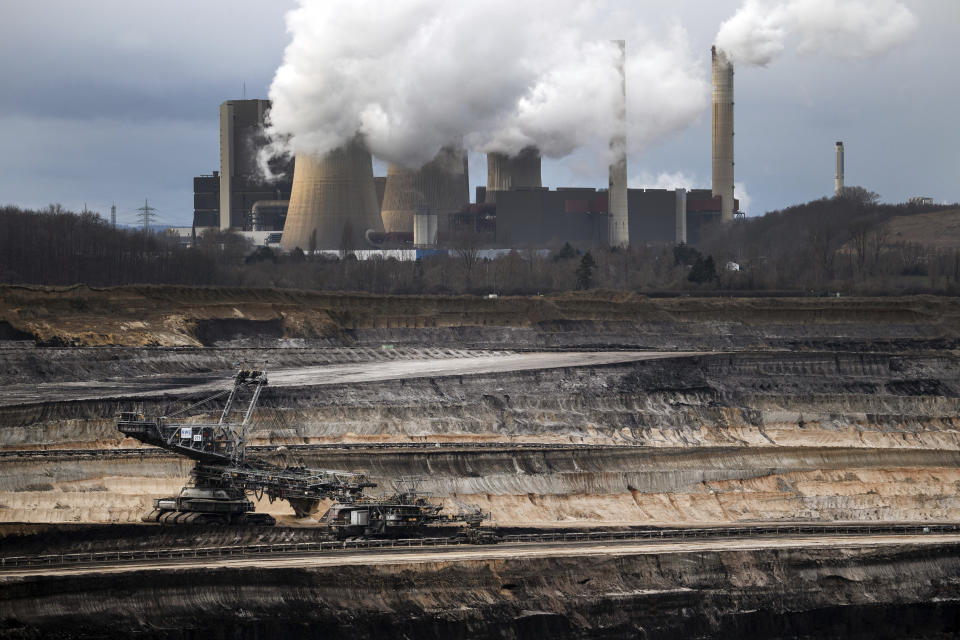BERLIN (AP) — Germany will pay utility companies billions of euros to speed up the shutdown of their coal-fired power plants as part of the country's efforts to fight climate change, the government said Thursday.
The agreement reached after late-night deliberations between federal ministers and representatives of four coal-mining states removes a key hurdle in Germany's plan to curb greenhouse gas emissions over the coming decades.
Some regions, particularly in the less prosperous east, are heavily dependent on mining lignite, or brown coal. Together with imported bituminous — or black — coal it provides about a third of Germany's electricity needs but is also responsible for a big share of the country's carbon emissions.
Finance Minister Olaf Scholz said that operators of heavily polluting coal-fired power plants in western Germany will receive 2.6 billion euros ($2.9 billion) in compensation for switching them off early, while 1.75 billion euros will go to those with plants in the east. The compensation is separate from up to 40 billion euros that the government has already promised to coal-mining regions to soften the blow of abandoning the fossil fuel.
The government said reviews will be carried out in 2026 and 2029 to determine whether Germany can exit coal-fired electricity generation in 2035, three years before the final deadline.
“What we have here is a good agreement for climate protection because it makes clear that we mean it seriously,” Economy Minister Peter Altmaier said. He added that the government plans to bring legislation to parliament at the end of this month.
Environmental campaigners criticized the decision though, noting that the agreement will see a new coal-fired plant — Datteln 4 — go on-line this year and allow for the expansion of the Garzweiler open-cast mine in western Germany, though a nearby forest that has been the target of long-running protests will be spared.
“Australia's forests are burning, millions of people are demonstrating for climate protection and the German government is clearing the way for a new coal power plant,” lamented Martin Kaiser, the managing director of Greenpeace Germany. “Nothing shows more clearly than Datteln 4 that this government can't find an answer to the climate crisis.”
“Chancellor (Angela) Merkel has missed a chance today to provide companies with long-term planning safety and to send a signal that Germany is reacting appropriately to the climate crisis,” said Kaiser.
The response from businesses to the agreement was mixed.
Shares in German utility companies E.ON and RWE, which both stand to receive significant compensation for shutting down their coal plants, were up over 2% on the Frankfurt exchange Thursday.




